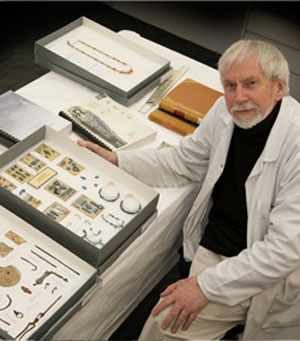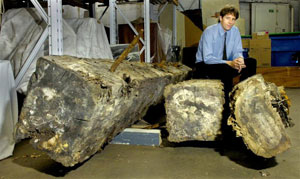Curator
Tasks & duties

Curators may do some or all of the following:
-
research items in a collection
-
consult with other staff to decide what items to display in exhibitions
-
decide what items to add to the collection
-
liaise with artists, art dealers, and other museums or galleries to source and acquire items for exhibitions and collections
-
work with designers on displays
-
research and write information about exhibitions and collections
-
store, transport, and keep database records for items
-
organise the repair of damaged items by a conservator
-
give talks on exhibitions and collections
-
organise maintenance and security of exhibitions
Specialisations
Curators may specialise in areas such as art, art history, natural history, or Māori or Pasifika culture.
Skills & knowledge

Curators need to have:
-
knowledge of the subject area they work in such as art, history, or material culture (the study through artefacts or objects of a community's beliefs)
-
knowledge of how to handle, conserve and preserve items in collections and exhibitions
-
good research skills, including up-to-date knowledge of theories and research methods
-
excellent writing skills
-
time management skills
-
negotiation skills, particularly when sourcing items for an exhibition
-
communication and public relations skills
-
knowledge of funding sources
Entry requirements
Curators need to have a postgraduate degree majoring in a specialist area such as art, art history, science, cultural studies or history. A postgraduate Diploma in Museum Studies may also be useful.
Secondary education
A tertiary entrance qualification is needed to enter further training. Useful school subjects include Māori studies, Pacific studies, art history, art, classical studies, history, science or English.
Training on the job
Curators may gain additional skills and knowledge on the job. They may attend seminars, conferences and workshops as part of their ongoing professional development, as it is important to keep up to date with national and international best practice.
Useful experience
Useful experience for curators includes:
-
voluntary or paid work in an art gallery or museum
-
work as an artist, art critic or art historian
-
work as an archaeologist or anthropologist
-
library or research work
-
project management
-
architectural work
Video
From just a job on you tube
Related courses
Art History
Curatorial Studies
Librarianship and Information Management
For more information, please refer to Career Services.
Document Actions
